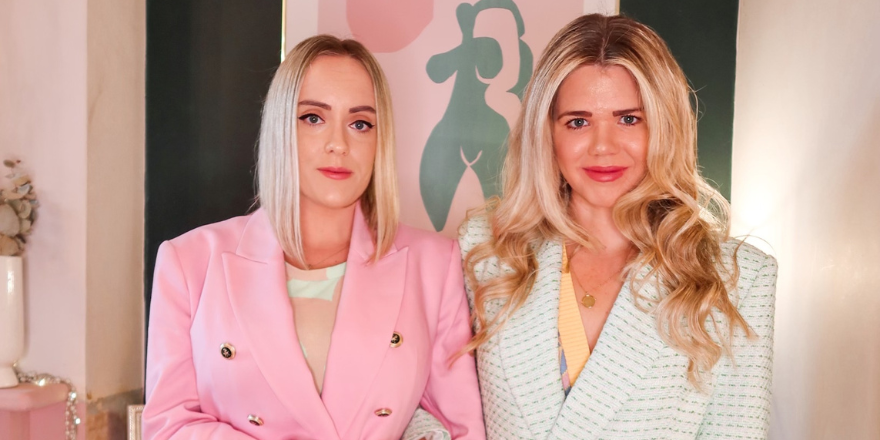The hidden costs facing potential LGBTQ+ parents

Photo: Whitney and Megan Bacon-Evans
The practical and financial costs that face many LGBTQ+ people who want to have children are unfair and must be challenged.
In this article, we explore how improving access to IVF will remove barriers for those looking to conceive, particularly lesbians, bi women and some trans people.
Where we stand
Stonewall and DIVA’s 2021 LGBTQI+ Insight Survey 2021 found that 36% of respondents who had children experienced barriers or challenges when starting their family. One in five of those stated that the greatest barrier or challenge was the high cost of private fertility treatment.
Currently, the National Institute for Health and Care Excellence (NICE) guidelines state that funded access to IVF in England is only available to women ‘who have not conceived after two years of regular unprotected intercourse or 12 cycles of artificial insemination (where six or more are by intrauterine insemination)’.
The UK Government’s 2022 Women’s Health Strategy pledged to remove additional financial barriers to In-Vitro Fertilisation (IVF) for female same-sex couples in England. This included the requirement to pay for artificial insemination (Intrauterine insemination or IUI) to prove fertility status before accessing IVF services. But we’re still waiting - only four of the 42 integrated care bodies have made this change as of April 2024 and no changes have been made in the past year.
Local ICBs choose how to delegate NHS funding – and many regional health boards in England still require female same-sex couples to self-fund at least six cycles of IUI before they are eligible for NHS IVF treatment. Others even require up to 12 cycles of self-funded artificial insemination – this is far beyond what is recommended in guidelines provided by the National Institute for Health and Care Excellence (NICE)
While lots of couples will conceive using IUI, the costs quickly rack up for those who don’t. Let’s start to add up the costs:
- IUI costs between £350-£1,600 per cycle at a private clinic, and same-sex female couples usually have to pay for 6-12 IUI cycles privately before they can access NHS services.
- 90% of Integrated Care Boards (ICBs) in England are still falling short of the Women’s Health Strategy’s commitment to 'relieve additional burdens [for same-sex female couples]' looking to form a family of their own.
- 19% of ICBs in England still require up to 12 self-funded cycles of artificial insemination (IUI) before offering any further support – meaning that female same-sex couples have to pay up to £25,000 before accessing NHS-funded IUI or IVF support.
- Accessing IVF is a ‘postcode lottery’ – meaning couples living in different areas could face additional hurdles when trying to conceive.
This policy creates significant practical and financial barriers for prospective parents, particularly lesbians, bi women and some trans people. Including additional costs, a couple who needed to fund twelve IUI cycles could have to spend up to £25,000 before being eligible for NHS care. For many, this cost is impossible to afford.
What needs to change?
Ensuring equitable access to NHS funding for IVF will mean that starting a family won’t be so inaccessible for our communities.
We know that better access to fertility services can be achieved – in Scotland, up to six cycles of IUI are funded for all couples, provided they meet the nationally agreed NHS criteria. In 2018, 70% of IUI cycles and 40% of IVF cycles for female same-sex couples were funded in Scotland. In Wales, 14% of IUI cycles and 31% of IVF cycles were funded in the same year. Clearly, there’s a lot of progress to be made across all areas of the UK.
Whitney and Megan Bacon-Evans are a lesbian couple highlighting the human impact of the current restrictions: “We were shocked and devastated to discover the discrimination that lesbian couples and bisexual women face in starting their family. Our local NHS policy states that female same-sex couples must self-fund 12 rounds of artificial insemination, 6 of which must be IUI in a private clinic. As we have chosen a sperm donor from a sperm bank, our only option is to have artificial insemination in a private fertility clinic.
“Female same-sex couples are being forced to pay tens of thousands of pounds in artificial inseminations in expensive private clinics to prove that they are infertile before they are eligible for any fertility treatment on the NHS. However, cis heterosexual couples can qualify for IVF on the NHS if they have not become pregnant after two years of unprotected sex. While this is a long time, it is at no additional financial cost."
LGBTQ+ people deserve the same help to become parents as everybody else. We must ensure that lesbians, bi women, and other LGBTQ+ people who want to conceive should have equitable access to NHS-funded care.
Make access to IVF equal - email your MP today.
Donate to support our campaign for fertility equality.
References

